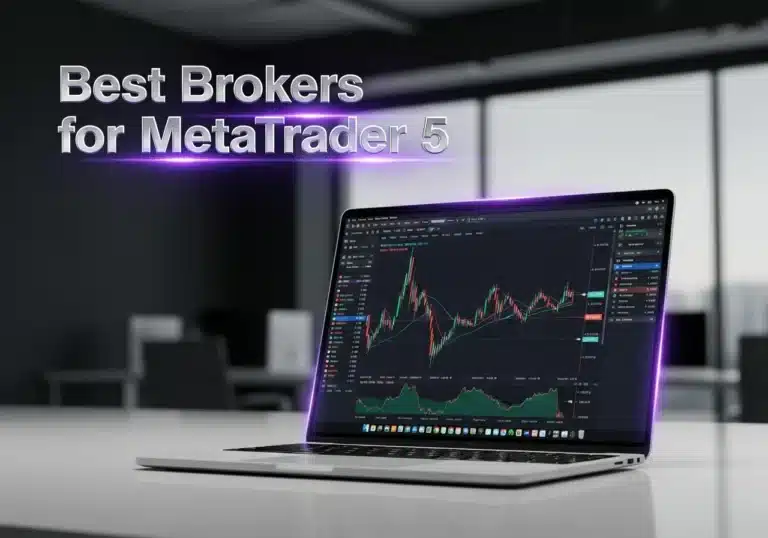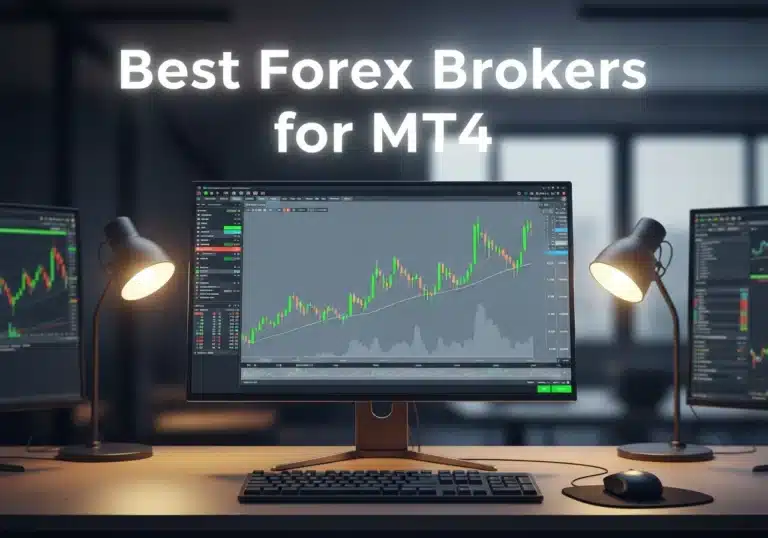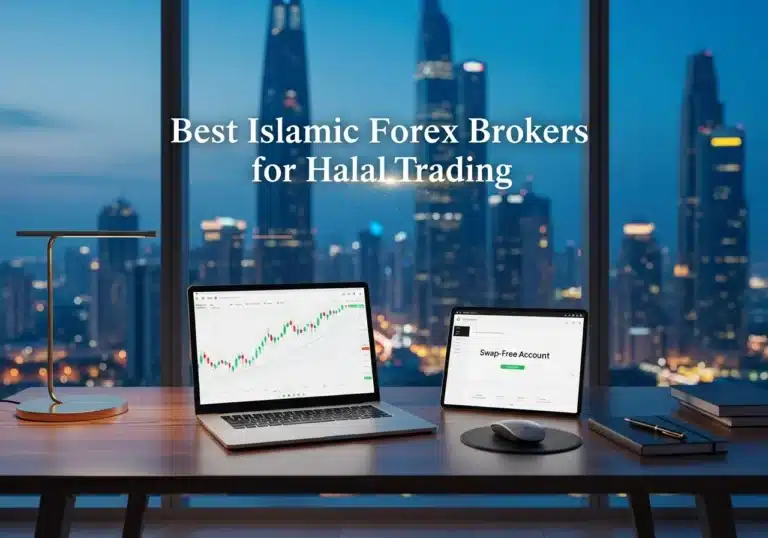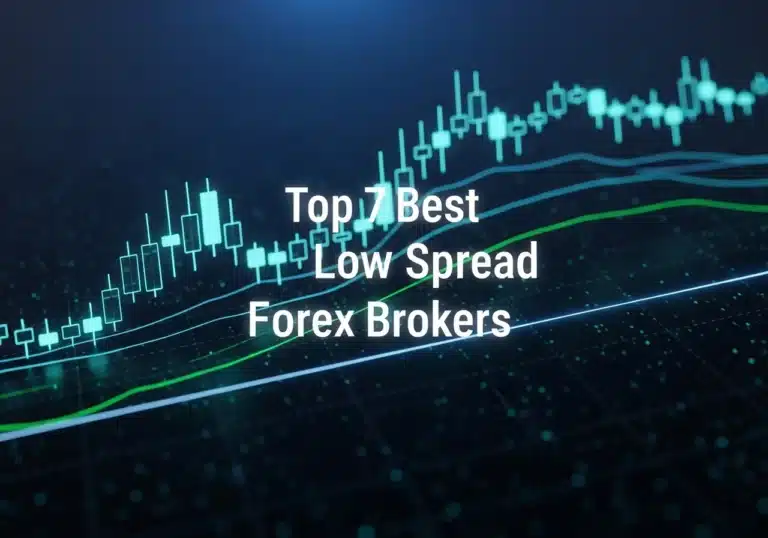Are you ready to embark on a journey that could transform your financial future? The foreign exchange market, or forex, stands as the largest and most liquid financial market globally, offering unparalleled opportunities for traders to capitalize on currency fluctuations. Whether you’re a seasoned investor or a newcomer eager to explore new horizons, understanding how to choose a Forex broker is the cornerstone of your trading success. This guide delves deep into the essential factors you must consider when choosing a forex broker, ensuring you make informed decisions that align with your trading style, goals, and risk tolerance. By the end of this article, you’ll be equipped with the knowledge to navigate the complexities of the forex market confidently and effectively.

Key Considerations When Choosing a Forex Broker
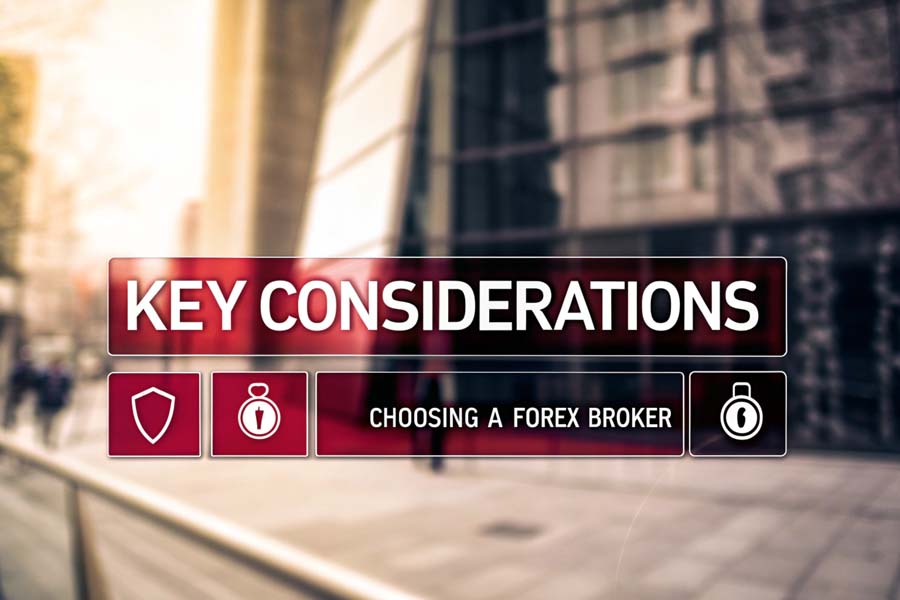
Selecting the right forex broker is a pivotal decision that can significantly influence your trading journey. It’s not just about finding a platform to execute trades; it’s about partnering with a service that supports your growth, enhances your trading experience, and safeguards your investments. Let’s explore the critical factors to consider when choosing a forex broker.
Read More: best trading platform for forex
Regulatory Compliance
Your financial safety begins with ensuring your broker is regulated. Regulatory compliance is non-negotiable when selecting a forex broker. Reputable brokers operate under stringent regulations set by authoritative bodies, ensuring they adhere to high standards of transparency, fairness, and security.
Why Regulation Matters:
Regulated brokers are subject to regular audits and oversight, which minimizes the risk of fraud and malpractice. These regulations mandate that brokers maintain segregated accounts, ensuring your funds are protected even if the broker faces financial difficulties. Additionally, regulatory bodies enforce rules that prevent deceptive practices, providing you with a secure trading environment.
Key Regulatory Bodies:
When choosing a forex broker, it’s essential to verify their regulatory status. Some of the most respected regulatory authorities include:
- NFA (National Futures Association) and CFTC (Commodity Futures Trading Commission) in the United States.
- FCA (Financial Conduct Authority) in the United Kingdom.
- ASIC (Australian Securities and Investments Commission) in Australia.
Each of these bodies imposes rigorous standards that brokers must meet, offering you peace of mind and a layer of protection for your investments.
Types of Brokers
Understanding the different types of brokers can profoundly impact your trading experience. The forex market is served by various broker models, each offering distinct advantages and catering to different trading needs.
Market Makers vs. ECN Brokers:
- Market Makers create their own market by taking the opposite side of your trades. They often offer fixed spreads, providing predictability in your trading costs. This model is particularly beneficial for beginners due to its simplicity and ease of use.
- ECN (Electronic Communication Network) Brokers connect traders directly to the interbank market, offering variable spreads that can be tighter during high liquidity periods. This transparency attracts advanced traders who seek more competitive pricing and lower trading costs.
Benefits of Each Type:
Market Makers are ideal for those who prefer stability and predictability, while ECN Brokers appeal to traders looking for transparency and potentially lower costs. Your choice between these broker types should align with your trading strategy and level of expertise.
Account Types and Features
The right account type can enhance your trading efficiency and align with your financial capacity. Brokers offer various account types to cater to different trader needs and capital levels.
Overview of Account Types:
- Micro Accounts are perfect for beginners with limited capital, allowing smaller trade sizes and lower risk exposure.
- Mini Accounts strike a balance between accessibility and trading flexibility, suitable for intermediate traders.
- Standard Accounts are designed for experienced traders with higher capital, enabling larger trade sizes and greater leverage options.
Leverage and Margin Requirements:
Leverage can amplify both your potential profits and losses. Understanding the leverage and margin requirements of each account type is crucial for effective risk management. High leverage can increase your trading power but also heightens your exposure to market volatility. Ensure that the broker offers leverage options that match your risk appetite and trading strategy.
Trading Costs
Minimizing trading costs is essential for maximizing your profitability. When choosing a forex broker, it’s vital to understand the different types of costs associated with trading.
Spreads and Commissions:
- Spreads represent the difference between the bid and ask price of a currency pair. Lower spreads mean lower trading costs, which can significantly impact your profitability over time.
- Commissions are fixed fees charged per trade, commonly associated with ECN brokers. While commissions can add to your trading costs, they may be offset by the benefit of tighter spreads.
Fixed vs. Variable Spreads:
- Fixed Spreads remain constant regardless of market conditions, offering predictability, especially during volatile periods.
- Variable Spreads fluctuate based on market volatility, potentially offering tighter spreads during stable conditions but may widen during high volatility.
Carefully evaluating the spread and commission structures will help you understand how they affect your overall trading costs and profitability.
Read More: Forex Trading Tools
Trading Platforms
A robust trading platform is the backbone of your trading activities. The platform you choose can significantly influence your trading efficiency and experience.
User-Friendly Interface:
A user-friendly platform enhances your ability to execute trades efficiently and monitor market movements in real-time. It should be intuitive, allowing you to navigate seamlessly without a steep learning curve.
Essential Features:
Look for platforms that offer advanced charting tools for in-depth market analysis, customization options to tailor the interface to your trading style, and mobile access for trading on-the-go. Additionally, features like automated trading capabilities and real-time data feeds can greatly enhance your trading strategy and execution.
Customer Support
Reliable customer support is indispensable for resolving issues swiftly and maintaining uninterrupted trading. When choosing a forex broker, assess the quality and availability of their customer support services.
Availability and Responsiveness:
24/7 support is ideal, especially if you trade across different time zones. Quick response times can prevent prolonged downtime during critical trading moments, ensuring that technical glitches or account issues do not hinder your trading activities.
Support Channels:
Effective brokers offer multiple support channels, including live chat for immediate assistance, phone support for direct communication, and email for detailed inquiries. Ensure that the broker provides comprehensive support options to address any concerns you may have promptly.
Deposit and Withdrawal Methods
Seamless and secure transaction methods are crucial for smooth trading operations. The ease with which you can deposit and withdraw funds can significantly impact your trading experience.
Funding Options:
Brokers typically offer various funding methods, including credit/debit cards, bank transfers, e-wallets like PayPal and Skrill, and increasingly, cryptocurrencies. Each method has its own processing times and associated fees.
Understanding Fees and Processing Times:
Be aware of any fees related to deposits and withdrawals, as well as the time it takes for transactions to be processed. Some brokers offer instant withdrawals, while others may require a few business days. Choosing a broker with transparent fee structures and efficient processing times can save you from unexpected delays and costs.
Educational Resources and Tools
Continuous learning is key to staying competitive in the forex market. High-quality educational resources can significantly enhance your trading skills and knowledge.
For Beginners and Advanced Traders:
Educational materials such as webinars, tutorials, articles, and video lessons cater to traders at all levels. Brokers that provide comprehensive educational resources help you build a strong foundation in forex trading principles and strategies.
Practical Tools:
Demo accounts allow you to practice trading without risking real money, enabling you to test strategies and familiarize yourself with the platform. Additionally, economic calendars and real-time news feeds can keep you informed about market-moving events, aiding in more informed trading decisions.
Bonuses and Promotions
Attractive bonuses can provide additional value, but understanding the terms is essential. While bonuses can enhance your trading capital, it’s crucial to scrutinize the associated terms and conditions.
Common Broker Bonuses:
Brokers may offer welcome bonuses for initial deposits, referral bonuses for bringing new traders, and loyalty programs that reward long-term traders with perks like reduced spreads or cashback offers.
Understanding Bonus Terms:
Pay close attention to wagering requirements, withdrawal restrictions, and expiry dates associated with bonuses. These conditions can affect your ability to utilize bonus funds effectively and may influence your trading strategy.
Risk Management Features
Effective risk management tools are crucial for preserving your capital and ensuring long-term success. Understanding and utilizing these tools can help you navigate the inherent risks of forex trading.
Essential Tools:
Stop-loss orders automatically close positions at predetermined levels to limit potential losses, while take-profit orders lock in profits once specific targets are reached. These tools are fundamental for managing risk and protecting your trading capital.
Margin Calls and Leverage Risks:
Be aware of margin calls, which occur when your account balance falls below the required margin, potentially leading to the automatic closure of positions. High leverage can magnify both gains and losses, making it imperative to use leverage cautiously and understand its implications on your trading account.
Pro Tips for Advanced Traders
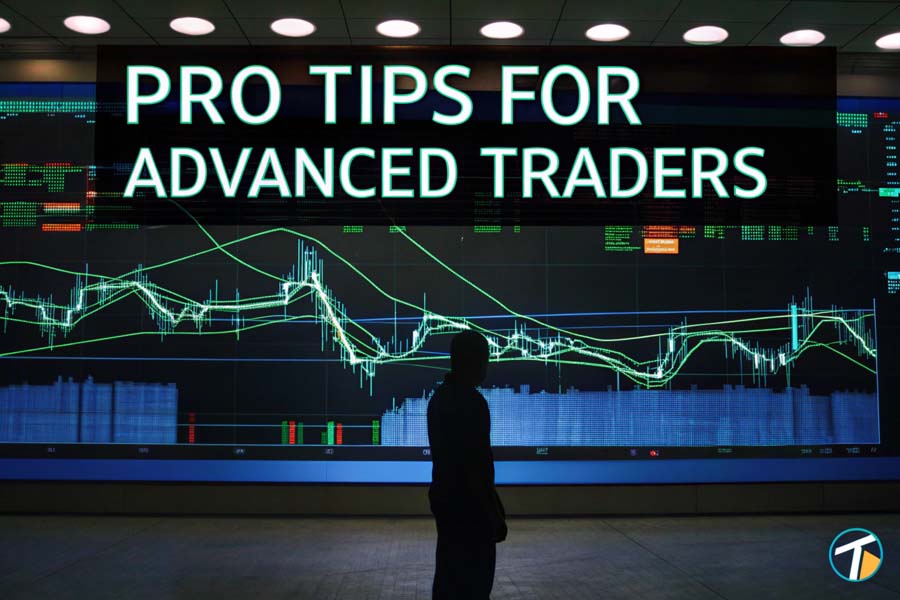
Elevate your trading strategy with these expert insights. For those who have mastered the basics and are looking to refine their approach, these pro tips can enhance your trading performance and profitability.
- Leverage Advanced Charting Tools:
Utilize technical indicators and chart patterns to identify high-probability trading opportunities. Customizing your charts with multiple timeframes and indicators can provide deeper market insights and improve your decision-making process. - Diversify Your Portfolio:
Spread your investments across different currency pairs and asset classes to mitigate risk. Diversification helps protect your portfolio from significant losses if one market segment underperforms. - Stay Informed with Market News:
Keep abreast of economic indicators, geopolitical events, and central bank policies that can influence currency movements. Utilizing real-time news feeds and economic calendars can help you stay ahead of market trends and make informed trading decisions. - Optimize Your Trading Schedule:
Trade during peak market hours to take advantage of higher liquidity and tighter spreads. Aligning your trading activities with market movements ensures you can capitalize on favorable conditions and reduce the impact of volatility. - Implement Automated Trading Systems:
Use algorithms and trading bots to execute strategies with precision and speed. Automated systems can help eliminate emotional biases and ensure consistent execution of your trading plan. - Analyze Your Trading Performance:
Regularly review your trading history to identify strengths and weaknesses. Utilizing performance metrics and analytics tools can help you refine your strategies and improve your overall trading effectiveness.
These pro tips are designed to help advanced traders enhance their strategies, manage risks more effectively, and achieve greater trading success.
Opofinance Services: Your Trusted ASIC Regulated Broker
When it comes to selecting a regulated forex broker, Opofinance stands out as a premier choice. As an ASIC regulated broker, Opofinance ensures the highest standards of security and transparency, providing you with a reliable and enriching trading experience.
Read More: Drawdown Management in Forex
Why Choose Opofinance?
Social Trading Service:
Opofinance offers a unique social trading platform that allows you to connect and collaborate with a community of experienced traders. By following top traders and replicating their trades, you can leverage their expertise to enhance your trading performance. This collaborative environment fosters shared strategies and insights, making it easier for you to learn and grow as a trader.
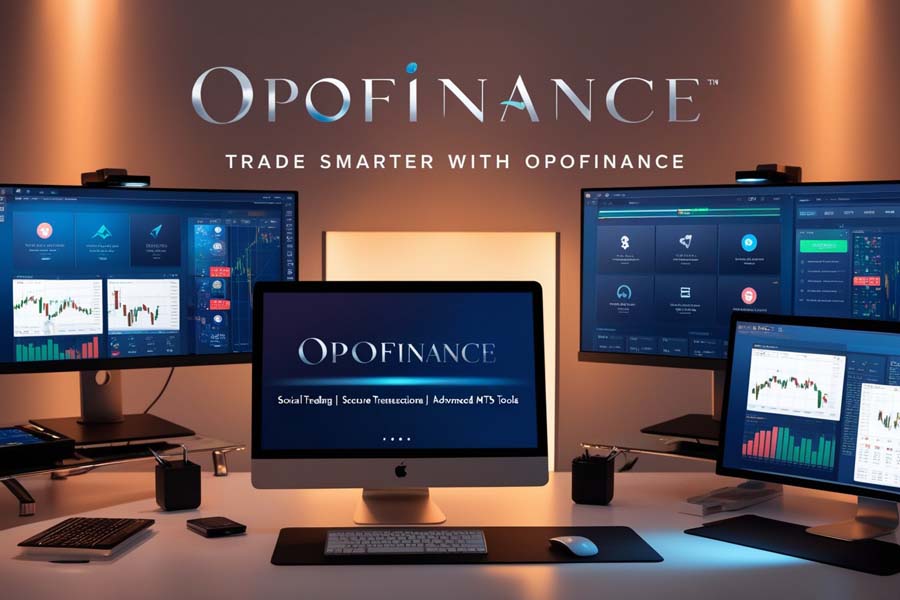
Featured on the MT5 Brokers List:
Opofinance is officially featured on the MetaTrader 5 (MT5) brokers list, one of the most powerful and versatile trading platforms available. MT5 offers advanced charting tools, automated trading capabilities, and a user-friendly interface, empowering you to execute trades efficiently and effectively.
Safe and Convenient Deposit and Withdrawal Methods:
Opofinance provides a variety of secure funding options, including credit cards, bank transfers, and e-wallets like PayPal and Skrill. These methods ensure hassle-free transactions with fast processing times and minimal fees, allowing you to access your funds whenever you need them without unnecessary delays.
Comprehensive Educational Resources:
Opofinance is committed to supporting your trading education with a wealth of resources, including webinars, tutorials, and informative articles. Whether you’re a beginner or an experienced trader, these materials are designed to enhance your trading knowledge and skills. Additionally, demo accounts are available for you to practice strategies without risking real money.
Exceptional Customer Support:
Opofinance prides itself on providing exceptional customer support. Available 24/7 through live chat, phone, and email, their knowledgeable support staff is always ready to assist you with any issues or queries you may have, ensuring your trading experience remains smooth and uninterrupted.
Choose Opofinance for a reliable and enriching trading experience that caters to both beginners and seasoned traders alike.
Conclusion
Selecting the right forex broker is a pivotal step towards achieving success in the dynamic world of forex trading. By carefully evaluating factors such as regulatory compliance, broker types, account features, trading costs, and customer support, you can make an informed decision that aligns with your trading objectives and risk tolerance. Remember, choosing a forex broker is not merely about finding a platform to execute trades, but about partnering with a service that supports your growth and enhances your trading journey. Take your time to conduct thorough research, leverage the insights provided in this guide, and embark on your trading journey with confidence and clarity.
Key Takeaways
- Regulation is Non-Negotiable: Always choose a broker regulated by reputable authorities to ensure the safety of your funds.
- Understand Broker Types: Whether you prefer market makers or ECN brokers, each type offers distinct advantages that can impact your trading strategy.
- Evaluate Trading Costs: Lower spreads and transparent fee structures can significantly improve your profitability.
- Prioritize a Robust Trading Platform: A user-friendly and feature-rich platform is essential for executing trades efficiently.
- Leverage Educational Resources: Continuous learning and access to quality educational materials can enhance your trading skills and knowledge.
- Consider Customer Support: Reliable and responsive customer service can make a significant difference during critical trading moments.
- Implement Risk Management Strategies: Utilize tools like stop-loss orders and understand margin requirements to protect your trading capital.
- Explore Advanced Trading Tools: For experienced traders, advanced charting, automated trading systems, and portfolio diversification can elevate your trading performance.
Can I switch brokers if I’m not satisfied with my current one?
Absolutely, you can switch brokers at any time. However, it’s essential to understand the terms and conditions associated with your current broker, such as withdrawal policies and any potential fees, before making the switch. Ensure that you transfer your funds and close all open positions properly to avoid any complications.
How important is the broker’s trading platform in my decision?
The trading platform is crucial as it directly affects your ability to execute trades efficiently and utilize advanced trading tools. A reliable and user-friendly platform can enhance your trading experience by providing real-time data, advanced charting features, and seamless order execution. Investing time in choosing a platform that suits your trading style can significantly improve your overall performance.
What should I look for in a broker’s educational resources?
When evaluating a broker’s educational resources, look for comprehensive and up-to-date materials that cater to both beginners and advanced traders. This includes webinars, tutorials, articles, video lessons, and interactive courses. Additionally, access to demo accounts for practice trading and tools like economic calendars and market analysis reports can greatly enhance your learning and trading capabilities.


